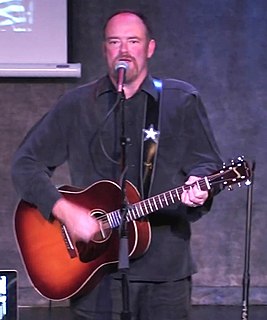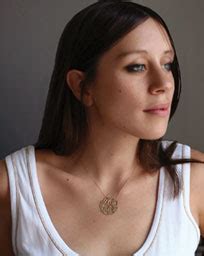A Quote by Charles Dickens
It was a dagger in the haughty father's heart, an arrow in his brain, to see how the flesh and blood he could not disown clung to this obscure stranger, and he sitting by. Not that he cared to whom his daughter turned, or from whom turned away. The swift sharp agony struck through him, as he thought of what his son might do.
Related Quotes
And none of these people, not one of them, had loved any of the others well enough. Failures, he thought, we're all failures... He wanted his love to be the wine and bread, and the blood and flesh. He reached for her, a dangerous stranger in a city of dangerous strangers, but she turned away from him and walked unsteadily through the crowd. How many loveless people walk among the barely loved?
His [Elijah] heart was beginning to give signs of alarm; he was enjoying being at this woman's side. Love could be a more frightening experience than standing before Ahab's soldier with an arrow aimed at his heart; if the arrow had struck him, he would be dead -and the rest was up to God. But if love struck him, he alone would have to take responsibility for the consequences.
Such was the will of the Father that his Son, blessed and glorious, whom he gave to us, and who was born for us, should by his own blood, sacrifice, and oblation, offer himself on the altar of the cross, not for himself, by whom "all things were made," but for our sins, leaving us an example that we should follow his steps.
When the father dies, he writes, the son becomes his own father and his own son. He looks at is son and sees himself in the face of the boy. He imagines what the boy sees when he looks at him and finds himself becoming his own father. Inexplicably, he is moved by this. It is not just the sight of the boy that moves him, not even the thought of standing inside his father, but what he sees in the boy of his own vanished past. It is a nostalgia for his own life that he feels, perhaps, a memory of his own boyhood as a son to his father.
I could tell by his expression that once he got over his anger at me for keeping this secret from him, there was nothing left to talk about. He wasn't confused. He didn't need questions answered. He didn't ask why or how or with whom or whether I thought maybe it might just be a phase. He didn't ask who knew and who didn't know or whether I thought it might ruin my career. I was his sister and he didn't care whether I was straight or gay; it simply didn't matter to him.
In that most burdensome moment of all human history, with blood appearing at every pore and an anguished cry upon His lips, Christ sought Him whom He had always sought—His Father. “Abba,” He cried, “Papa,” or from the lips of a younger child, “Daddy.” This is such a personal moment it almost seems a sacrilege to cite it. A Son in unrelieved pain, a Father His only true source of strength, both of them staying the course, making it through the night—together.
Pain! Deep, tearing, throbbing, needle-sharp, hammer-blunt pain – ripping through his body and through his mind, twisting deep in his guts and slicing at his skin with razors and broken glass. Oskan wanted to scream, but his vocal cords had burned away. He was desperate for water and he could hear it dripping all around him, but his charred tongue found nothing in his mouth but blisters and scorched flesh. For hours he lay on the ropes of the low bed, unable to move, the pressure of the hemp on his destroyed skin sending new agonies deep into his body.
Every man should write a brief history of his life: his parentage, his birth, his religion, when he was baptized and by whom, when ordained, what to, and by whom-give a brief sketch of all his missions and of all his official acts and the dealings of God with him. Then if he were to die and the historians wished to publish his history, they would have something to go by.
All the delights of sense, or heart, or intellect, with which you could once have tempted him, even the delights of virtue itself, now seem to him in comparison but as the half nauseous attractions of a raddled harlot would seem to a man who hears that his true beloved whom he has loved all his life and whom he had believed to be dead is alive and even now at his door.
When I look at Jesus' warm and intimate friendships, my heart fills with praise that Jesus was. . . a man. A man of flesh-and-blood reality. His heart felt the sting of sympathy. His eyes glowed with tenderness. His arms embraced. His lips smiled. His hands touched. Jesus was male! Jesus invites us to relate to him as the Son of Man. And because he is fully man, we can relate to Jesus with affection and love.
And still Meriadoc the hobbit stood there blinking through his tears, and no one spoke to him, indeed none seemed to heed him. He brushed away the tears, and stooped to pick up the green shield that Eowyn had given him, and he slung it at his back. Then he looked for his sword that he had let fall; for even as he struck his blow his arm was numbed, and now he could only use his left hand.



































